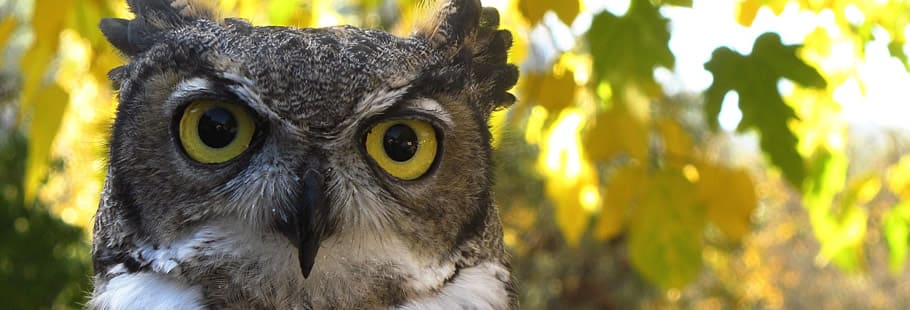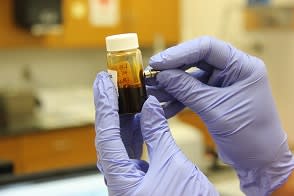Welcome to the lab! - 10 Pieces of Wisdom for new PhD Students in the Sciences
First of all, a disclaimer: During my 4 years as a PhD student, I have failed at exactly every single one of these points several times. Sometimes spectacularly. So think of this post as a collection of mistakes YOU can avoid!
It is conventional wisdom that the difference between science and fooling around…is writing it down!
Find a format that works for you and then stick to it religiously.
Some people copy all their results down in neat, colour-coded lab-books. Other people favour a digital format and keep separate PowerPoint presentations and Excel sheets.
I firmly believe there are no right or wrong ways of doing it, as long as you have a record of your work that is accessible and makes sense to you!
PhDs require hard-core multitasking and independent work, which are not necessarily things you will have done before. The best way to keep your head above water is to plan everything, especially at the beginning.
Set aside a time in the week to sit down (maybe with a nice cup of tea) and list everything you want to get done in the coming week. Write it down on a planner or in a diary or use your phone or Google Calendars if you like getting reminders!
This will allow you to identify what things you can do at the same time and be extra-efficient and will save you from getting lost in the middle of a busy day in the lab.
3) Keep track of your protocols
Few of us are blessed with super-organised, efficient labs where all protocols are typed up and available on the cloud.
Most likely, your lab will have a few post-docs and PhD students with their own protocols, often inherited from older members of the lab. To make matters worse, often these protocols will come with unwritten notes – “make sure it doesn’t look crooked”, “always add an extra condition for safety”, “write on the side of the plate as you won’t be able to read the top in the microscope” etc.
Make sure you get yourself a copy of all these protocols and add all of those pro-tips, they will come in handy one day!
4) Organise your lab space
Once you start in a new lab, you’ll probably be impatient to get started with some cool experiments!
But consider taking an afternoon to organise your desk/lab space. You are going to spend many, many hours there in the upcoming four years and you want to have it just the way you like it.
Most likely you are inheriting somebody else’s lab space, so make sure you clear out all of their junk (praevia consultation with a senior member of the lab to make sure of what is in fact junk at what is valuable equipment!).
5) Get your replicates out of the way
If you are somehow involved in the life sciences, your life depends on your ability to replicate your results at least three times.
Once you get busy with your project and have multiple experiments on the go, it’s very easy to find that something works and forget to repeat it the necessary number of times.
Make sure you don’t move on until you have all the replicates you need! If you don’t, you’ll wake up one morning in your fourth year trying to repeat an experiment you haven’t even thought about for two years – and trust me, that ain’t pretty!
Want More Updates & Advice?
6) Keep up with your reading
It’s very easy to get bogged down in lab work and forget to keep up with the latest developments in your field. These are crucial to understanding your own work, but they'll also inspire you with new ideas.
Resources like PubMed allow you to get personalised email alerts, telling you of any new papers that have come out during the week with specific keywords in the abstract.
What I do is have my alerts set to Monday morning and then go through them with a cup of coffee and a few biscuits to ease the pain and get in the mood for the working week!
7) Try to learn something new all the time!
The beginning of a PhD presents with a VERY steep learning curve. However, after that’s done you will find you more or less know how to do your job, which is when you will easily forget you are a student.
Try to keep in mind you’re supposed to be learning and keep improving your skillset.
! Is there new software you could learn how to use? Could you learn how to analyse your data differently? Do you need to practice your writing?
8) Look after your work / life balance
PhDs are intense - and rightly so.
But you'll struggle to do any good work if you are always exhausted and worn-out.
Comparing yourself to other students (or to crazy-committed postdocs) in the lab is also unhelpful - and unlikely to support the feeling that you can take a day off.
Well, you can take a day off. Make sure you do something fun every now and again!
9) Build a functional relationship with your supervisor
Let’s be blunt, academics aren’t always the easiest people to work with. Your supervisor will care about your project and your success, but they'll also have a much broader workload.
And, no matter how great you think they are at the beginning of your project, you and your supervisor are going to disagree at some point in time. Try to keep it professional and constructive and make sure that you understand what is expected of you.
At the same time, set boundaries for what you think is acceptable and keep in mind, you are both working towards the same goal!
10) Try to have some fun!
PhDs are difficult and sometimes stressful. But they are also a special time in your life when you get to work independently on something you find fascinating in the company of like-minded people.
So don't just view your PhD as a challenge - to have fun with it!
For more PhD wisdom, check us out at Randall Science - we even have a dedicated section on PhD student life!
Want More Updates & Advice?
Interested in working alongside students like Gaia? Check out current PhD opportunities at King's College London. Gaia also maintains her own Time For Science blog. Or, for a further look at what to expect during your doctorate, check out our guide to the PhD Journey.

 Continue with Facebook
Continue with Facebook












